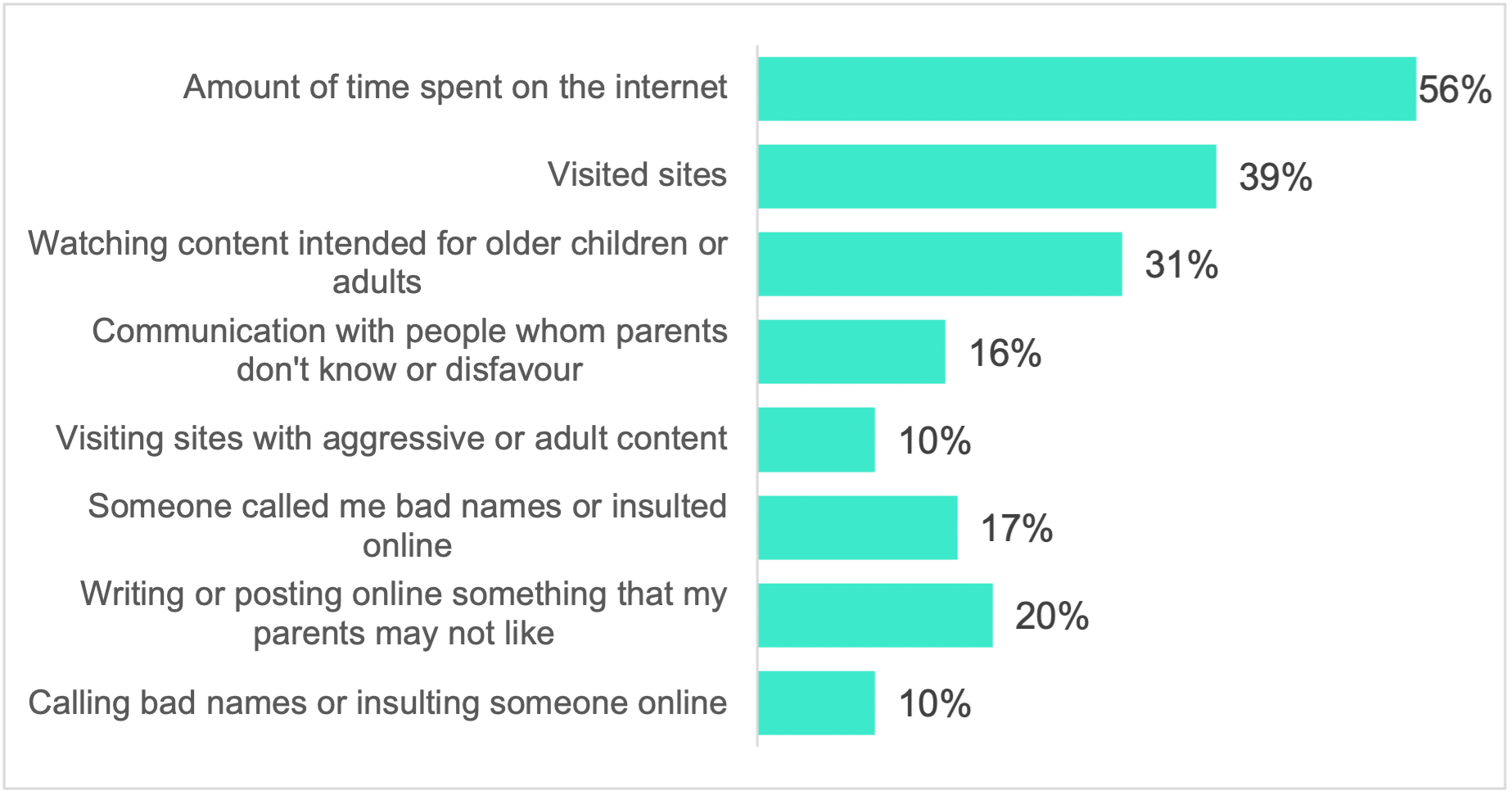According to the findings from a recent Kaspersky survey*, among respondents from South Africa, over half (54%) of children aged 11-17 years old hide their online activities from their parents and other grown-ups. To do this, 28% of youngsters set passwords on all their devices, while 21% clear the browsing history after each access to the Internet so that other family members couldn’t check what they were doing online. And 11% prefer going online when their parents are not around.
Among those who tend to keep their online activities a secret, a significant number (56%) of teenagers don’t want their parents to know how much time they actually spend on the Internet, or which websites they frequent (39%). Furthermore, 10% conceal information about visiting websites with aggressive or adult content, and 31% about watching content intended for adults.

What children prefer their parents don’t know about.
“It is understandable that parents may not be able to monitor all the online activities of their children. However, it is not necessary to do so. Instead, it is more important to build and maintain close relationships with children. Regularly chatting with them about their experiences, including those related to their digital lives, is essential. Creating a communication strategy that allows them to reach out when they have concerns is also crucial,” comments Seifallah Jedidi, Head of Consumer Channel in the Middle East, Turkiye and Africa at Kaspersky. “Applying parental control is not showing distrust to your child; it’s a sensible precaution with which you can, among other things, protect the device and the data on it. It allows parents to control which sites their children visit and which games they play, as well as disallowing file downloads, blocking access to content on unwanted topics and preventing the disclosure of confidential information”.
Kaspersky shares the following tips that can help to protect children’s digital experience:
- By staying informed about the latest threats and actively monitoring their children’s online activities, parents can create a safer online environment for their children.
- It’s crucial for parents to have open communication with their children about the potential risks they may encounter online and to enforce strict guidelines to ensure their safety.
- To secure your child from downloading any malicious files during their online experience, we advise to install a trusted security solution on their device.
- With the right tools such as Kaspersky’s digital parenting app Safe Kids, parents can effectively safeguard their children against cyber threats in the digital space.
*The survey was conducted by Toluna research agency at the request of Kaspersky. The study sample included 10000 online interviews (5000 parent-child pairs, with children aged 3 to 17 years) in 5 countries: Türkiye, South Africa, Egypt, Saudi Arabia, and the UAE.




